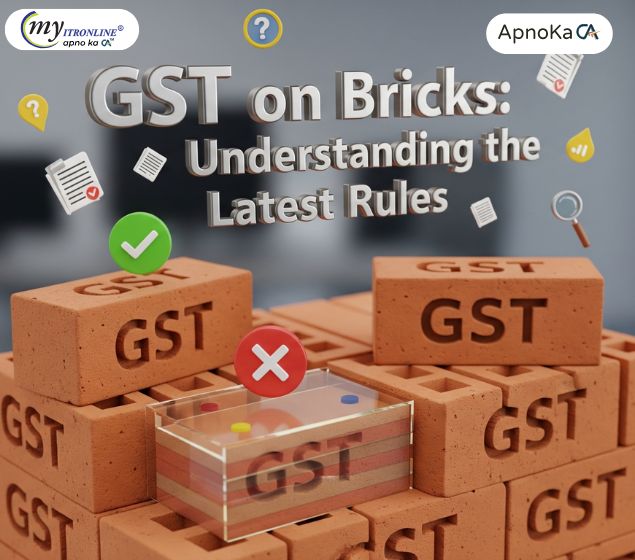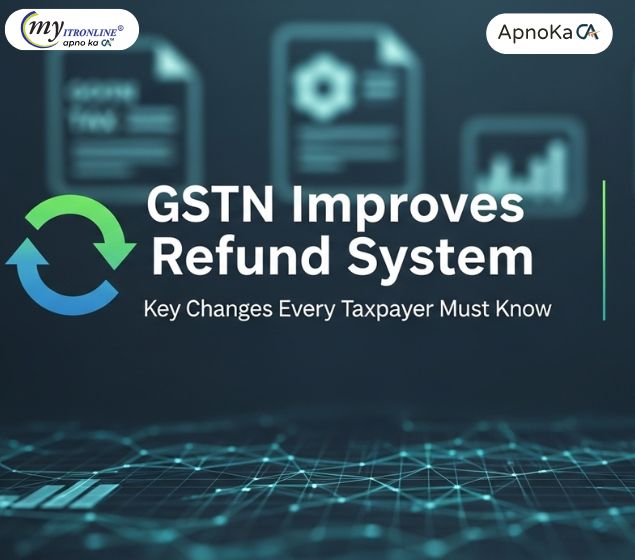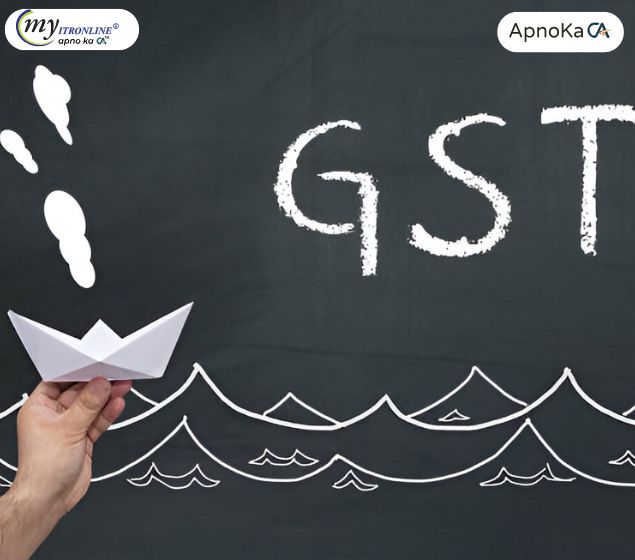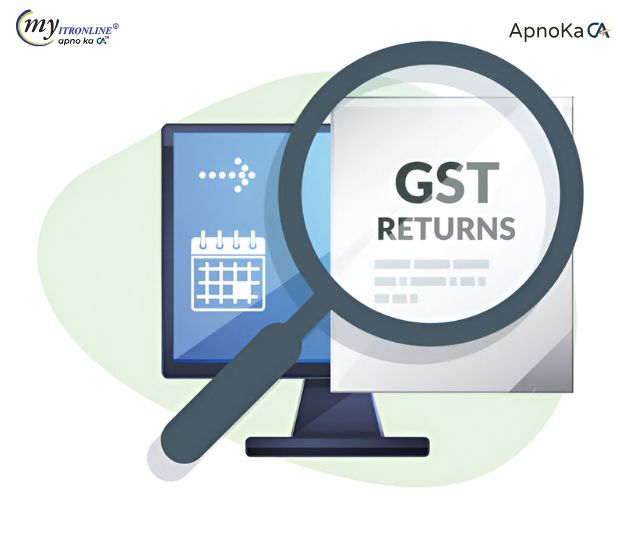# gstupdate
12 posts in `gstupdate` tag

Big News for Small Businesses: Say Goodbye to Annual GST Returns (GSTR-9) From FY 2024-25!
This blog post announces a significant and permanent change in GST compliance for small businesses in India. From Financial Year 2024-25, businesses with an annual aggregate turnover of up to 2 crore are exempt from filing the annual GST return (Form GSTR-9). The article details what changed, who benefits, and the tangible advantages like time and cost savings. It also highlights crucial reminders about continued monthly/quarterly filings, record-keeping, and turnover monitoring. The post emphasizes that this move will greatly enhance the "Ease of Doing Business" for millions of small enterprises.

GST on Bricks: Understanding the Latest Rules
This blog post clarifies the latest GST rules for bricks in India, effective September 22, 2025. It details the two tax options for most brick types (6% without ITC under composition scheme or 12% with ITC under regular scheme) and introduces a special 5% GST rate with ITC for sand-lime bricks, which cannot opt for the composition scheme. The article also highlights the crucial annual turnover threshold of ₹20 lakh for GST registration. It explains the importance of these changes, who is affected, the pros and cons, and provides actionable advice for businesses, including checking turnover, correct brick classification, scheme selection, pricing adjustments, and record-keeping. Finally, it discusses the implications for buyers and builders and outlines potential issues such as classification disputes and transitional challenges.

Big News! GST Rate Changes Are Coming Soon
This blog post announces significant changes to Goods and Services Tax (GST) rates in India, set to become effective from September 22, 2025, as per Notification No. 09/2025 – Central Tax (Rate). It provides a clear, simplified table comparing old and new rates for categories like household essentials, packaged food, luxury goods, hospitality, travel, professional consultancy, and IT services. The post highlights the implications for businesses (updating systems for compliance) and consumers (potential price changes), emphasizing the government's aim for clarity and easier compliance. It concludes by advising consultation with tax professionals for specific sector-related queries.

Historic Diwali Gift for the Nation: Next-Gen GST Reform
This blog details the significant GST cuts introduced as a 'Diwali gift' for the nation. It highlights how these reforms aim to simplify the tax structure and ease financial burdens across various sectors including daily essentials, agriculture, healthcare, education, and certain electronic appliances and vehicles, ultimately fostering a self-reliant India. The article also touches upon process reforms and a positive message from the Prime Minister.

Taxpayers Alert: Major Updates in GST Refund Rules
The Goods and Services Tax Network (GSTN) has significantly revamped its refund system, introducing a unified application form (RFD-01), enhanced document uploads, real-time tracking, and integration with PFMS for faster disbursements. This blog details these crucial updates, explaining how they streamline the refund process for taxpayers, promote transparency, and minimize delays, ensuring timely receipt of their legitimate refunds.
.jpg)
GSTR-3B Table 3.2: Your Essential Guide to the New Auto-Fill Rules
This blog post breaks down the recent GST Portal advisory about Table 3.2 of GSTR-3B. It explains that starting July 2025, details of inter-state supplies to unregistered persons, composition taxpayers, and UIN holders will be auto-filled and non-editable in GSTR-3B. This information will come directly from GSTR-1 or IFF. The advisory aims to cut down on mistakes and keep data consistent. The post also covers why this change is occurring, how to fix errors by amending GSTR-1/IFF or using GSTR-1A, and offers an action plan for taxpayers to ensure they report accurately and smoothly file their GST.

Easier Reporting: GSTR-7 and GSTR-8 Forms Get Updated!
This blog explains the significant updates to GSTR-7 (TDS) and GSTR-8 (TCS) forms, effective February 11, 2025, aimed at enhancing transaction data detail. It covers the 'why' behind these changes, the expected new reporting requirements (with a crucial note on the GSTR-7 invoice-wise reporting deferment), who is affected, and actionable steps for businesses to prepare for smoother GST compliance and reconciliation.

Important GST Update: Act Now! Returns Barred After 3 Years from August 1, 2025
This blog post provides an important update on GST for all registered businesses in India. Starting August 1, 2025, the GSTN will permanently prevent the filing of any GST returns that are more than three years overdue, according to the Finance Act, 2023. The article gives examples, such as GSTR-1 for June 2022 and GSTR-9 for FY 2020-21, to show the impact. It strongly urges taxpayers to reconcile their records right away and file any pending returns. The article discusses the serious consequences of not complying, including losing Input Tax Credit and facing legal troubles. It stresses the need to act now to prevent permanent blocking on the GST portal.

New E-Way Bill 2.0: What You Need to Know
This blog post provides a comprehensive yet concise overview of the upcoming E-Way Bill 2.0 system, effective July 1, 2025. It highlights the core objective of ensuring business continuity through a dual-portal operation and real-time data synchronization. Key enhancements, including new service functionalities and API integrations, are detailed, along with the benefits for taxpayers and transporters such as zero downtime and increased efficiency. The post concludes with actionable advice for businesses to prepare for the transition.

Exciting Update for Your GST Filings: GSTR-3B Will Have a
This blog post explains the upcoming major change in GST filing: the GSTR-3B's auto-populated tax liability will become non-editable from July 2025. It clarifies why this is happening, introduces GSTR-1A as the crucial form for corrections, and outlines the essential steps taxpayers must take to ensure timely and accurate compliance, including a note on the new 3-year return filing deadline.

GSTR-1/1A Table 12: Brace for Impact – Key Updates & Compliance Steps
The GSTN has rolled out crucial Phase-III changes to GSTR-1/1A Table 12, effective from April/May 2025. Key updates include the bifurcation of Table 12 into separate B2B and B2C sections, mandatory HSN/SAC code selection via dropdowns, and the introduction of value validations (initially in warning mode). This summary details these modifications, their impact on taxpayers based on AATO, and essential preparation steps to ensure smooth compliance.

New GSTN Rule: Consolidated B2C HSN Summary Required in GSTR-1
The recent Infosys GSTN update has made it mandatory to include a consolidated HSN (Harmonized System of Nomenclature) summary for all B2C (Business-to-Consumer) transactions in GSTR-1 filing. Earlier applicable mainly to B2B and high-value B2CS invoices, this significant change now requires businesses to classify and report even small B2C sales by HSN code. The update aims to improve transparency, data accuracy, and tax compliance. This blog details the key implications for businesses, steps for reporting the B2C HSN summary in Table 12 of GSTR-1, HSN digit requirements, and best practices to ensure seamless compliance under the new GST regime.
